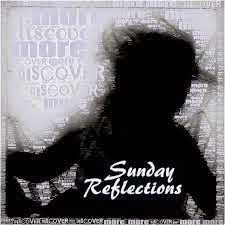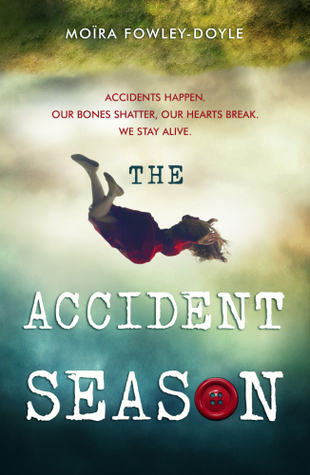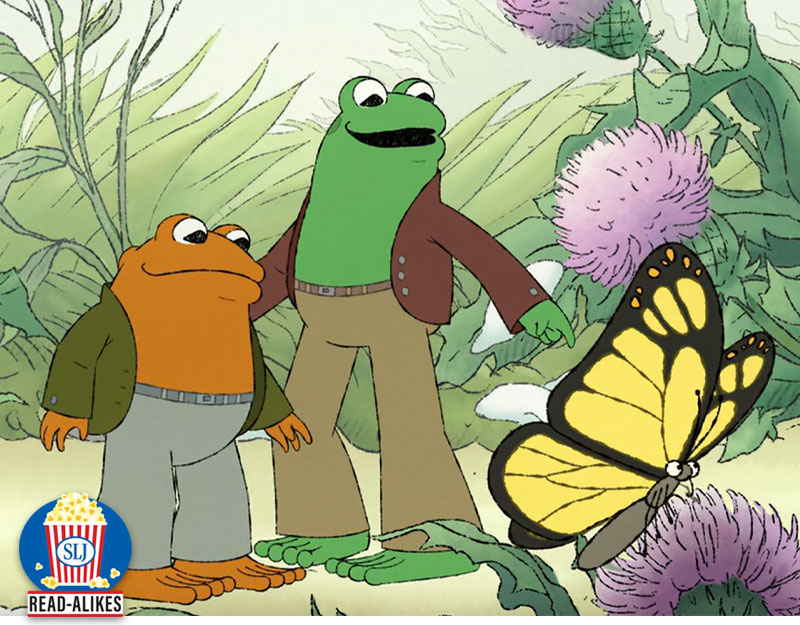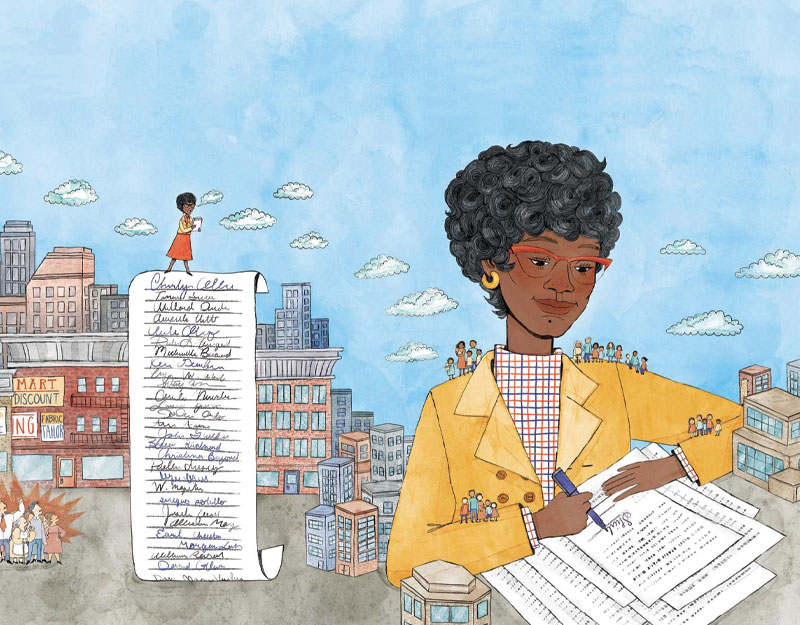Sunday Reflections: Sexual Abuse Does Not Cause Homosexuality and People are Not Rainbow Sprinkles
SPOILER ALERT: I WILL BE DISCUSSING
A RECENT YA RELEASE IN THIS POST
I met my first openly out individual when I was a Youth Ministry major at a conservative Christian college. Actually, I was friends with two women who identified as lesbian. Both of them had been victims of sexual abuse. Actually, both of them had been victims of sexual abuse in the church, which happens far too often. But as I mentioned, both of them had been victims of sexual abuse, which led me, in my naivete, to conclude that they were lesbians because they were victims of sexual abuse.
This is not true. And you would think I would have realized that it’s not true because I am the victim of sexual abuse and I have now been married to my husband for 20 years. What can I say, the Karen of her 20s was not that smart. But this is, apparently, or at least it was, a common perception, this idea that sexual abuse causes homosexuality.
ADVERTISEMENT
ADVERTISEMENT
When we began organizing the #SVYALit Project I reached out to a prominent YA author who identifies as queer and asked her to help with recommendations for a book list on titles of GBLBTQ fiction that feature sexual abuse. She declined saying that she couldn’t because most of the titles she was aware of unfortunately feed into the misguided and dangerous belief that sexual abuse causes homosexuality. I didn’t really understand what she was saying until I read THE ACCIDENT SEASON by Moira Fowley-Doyle.
AGAIN, MAJOR SPOILERS NOW FOLLOW
THE ACCIDENT SEASON is one of the most hauntingly beautiful books I have read this year. It is a moving and thought provoking ghost story. It is also a story about sexual abuse. In it, we learn that one of the main characters has been a victim of sexual abuse, which the accident season is a metaphor for – and one of the most profound uses of metaphor ever. It’s a well written book. But I really struggled with parts of the book in light of what this author had previously told me.
When we meet one of the main characters she is in an abusive relationship with a boy. We later learn that she was sexually abused by her stepfather. And by the end of the book she is in a relationship with a female character. No labels are ever used; no one says heterosexual or homosexual or bisexual. We never know if or how this character identifies herself. But I couldn’t shake the concern that underneath it all, especially since there was no discussion, was the subtle suggestion that because of a string of abusive relationships with men this young woman was now entering a relationship with a woman. I wondered to myself, is this what that author was discussing, this idea that abuse can cause homosexuality?
Make no mistake, the text in no way outright indicates that this is the case. But I could see how naive 20-year-old Karen would interpret this as yet another affirmation that homosexuality is abnormal and caused by sexual abuse. I could see where it would be problematic and I wrestled with it as a reader.
And yet . . .
We know that GLBTQ individuals ARE often the victims of sexual abuse. Sometimes they are the victims of abuse by partners, by the adults in their lives that they care about, and by complete strangers. Sometimes they are victims of abuse at the hands of someone who identifies as GLBTQ. Sometimes they are victims of abuse at the hands of someone who identifies as straight. So how, I wondered as I read, do we tell their stories without suggesting that the abuse leads to their identifying as GLBTQ? And did this book do that I wondered . . . To tell you the truth, I’m still wondering.
My journey of understanding and being able to respond in love to those who identify as GLBTQ is a process. As I mentioned, I entered into my 20s as a Youth Ministry major at a conservative Christian college. I’m sure you are more than aware of the things that as I was taught about homosexuality. It has not been an easy journey for me, trying to integrate the realities of the world around me with the fundamental tenants of my faith. It would be dishonest of me to say that I don’t still sometimes wrestle with it. But at the end of the day I can’t help but fall on the side of love: Love my neighbor, do no harm, judge not least you be judged. Many of the people I love in my life identify as GLBTQ and I want them to live in a world where they are loved, honored, cared for and respected.
And an important part of this journey for me is breaking down those misguided beliefs that I previously held. Sexual abuse is a horrific crime committed against peoples of all ages, gender, and sexual orientation. And it does not cause homosexuality. Many people who identify as GLBTQ have never been victims of sexual abuse. Many people who identify as straight have been victims of sexual abuse.
ADVERTISEMENT
ADVERTISEMENT
It’s important that these stories are told – all of them in all their varieties – because it’s important to break down the wrong headed beliefs of all the other 20-year-old Karens out their still trying to figure out this world that they live in. Earlier this week Roger Sutton over at Hornbook indicated that GLBTQ characters were “rainbow sprinkles” added into YA lit just to “gay things up”. The whole conversation is, quite frankly, offensive in the way it flippantly presents his argument regarding actual human beings and in the way he disregards that legitimate question of a middle school student, who may have been asking because he himself identifies as GLBTQ or cares about someone who does. But the conversation also brought me back to THE ACCIDENT SEASON. It’s a book I read quite literally months ago, and yet I still struggle with it and its possible implications all these months later as a reader. Stories have power, that’s why they matter.
On the one hand, I appreciated that there was no big coming out scene. There were no labels. She was just in one relationship and then later found herself in another one because that’s how life is. There was no much ado about nothing. It’s a thing I would like to see more of in YA lit. And yet I also can’t help but wonder if for some, it is a further reinforcement that homosexuality is an aberrant behavior that results from some type of trauma. Or maybe that’s me bringing my own baggage to the book, reinforced by the discussion I had previously with the author.
Here’s what I can tell you: I don’t have all the answers. But I do know that sexual abuse doesn’t cause homosexuality and people are not rainbow sprinkles, they are complex individuals worthy of respect and they deserve to have their stories told.
About THE ACCIDENT SEASON
It’s the accident season, the same time every year. Bones break, skin tears, bruises bloom.
The accident season has been part of seventeen-year-old Cara’s life for as long as she can remember. Towards the end of October, foreshadowed by the deaths of many relatives before them, Cara’s family becomes inexplicably accident-prone. They banish knives to locked drawers, cover sharp table edges with padding, switch off electrical items – but injuries follow wherever they go, and the accident season becomes an ever-growing obsession and fear.
But why are they so cursed? And how can they break free?
Publisher’s Description. Published August 18, 2015 by Corgi Childrens.
Filed under: Sunday Reflections
About Karen Jensen, MLS
Karen Jensen has been a Teen Services Librarian for almost 30 years. She created TLT in 2011 and is the co-editor of The Whole Library Handbook: Teen Services with Heather Booth (ALA Editions, 2014).
ADVERTISEMENT
ADVERTISEMENT
SLJ Blog Network
2024 Books from Pura Belpré Winners
In Memorium: The Great Étienne Delessert Passes Away
Winnie-The-Pooh | Review
Parsing Religion in Public Schools
ADVERTISEMENT










I read The Accident Season, and none of these issues occurred to me; I thought it was a stunningly complex novel on all fronts. I never thought of abuse causing gayness–otherwise, for starters, I would certainly be gay–and I didn’t think this book carried that message. However, I may have missed something others see. Will be interested to follow the comments.